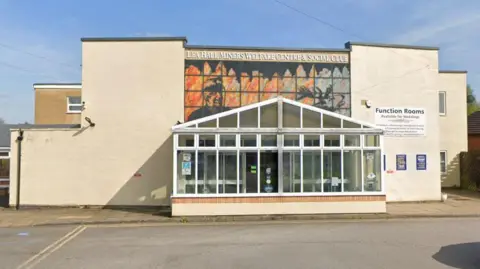County sites among dozens sold by mining charity
 Google
GoogleFour social welfare sites in Staffordshire paid for with the help of miners' earnings are among dozens which have been sold off with most of the money going to a national mining charity.
A BBC investigation found 27 sites in England, including in Kidsgrove, Rugeley and Stoke-on-Trent, were sold over the past 14 years for a total of £12.2m.
Former mining communities said they wanted the money from the sales to be reinvested in their local areas.
However the Coal Industry Social Welfare Organisation (CISWO) said it "cannot ring-fence funds for specific use in only one area".
The CISWO was created under the Miners' Welfare Act 1952 to support miners, their families and coalfield areas.
A spokesperson for the charity added it "carries out enormous good works" and had supported more than 130,000 miners or family members over the past 14 years, with more than £8m in grants.
It said many of the sites were closed for years beforehand and it does not keep all of the money from a sale as it has to pay costs such as debts owed by sites' trustees
The sites that were sold in Staffordshire include the Chatterley Whitfield sports ground in Stoke-on-Trent which sold for £2.5m in 2021 and the Pear Tree Youth Centre in Rugeley which sold for £500,000 in 2020.
Both sites became housing estates, the BBC investigation found.
Elsewhere, former tennis courts at Lea Hall Miners Welfare Centre in Rugeley were sold for £393,176 and also turned into housing.
Kidsgrove Central Youth & Community Centre, part of a British Coal transfer in the 1990s, was sold for £225,000 in 2020.
The CISWO, which supports former mining communities across the UK, said it had spent £58.8m over the past 14 years.
The charity added it was legally obligated to permanently keep some money on its balance sheet which it used to invest and generate income to be spent in local communities.
In response to its public accounts showing a reduction in the number of personal welfare payments, services and grants schemes, it said it had seen costs rise and fewer people seeking support.
The group said it had "broadened" its support for communities, which "changes and evolves as individuals age and needs grow".
Follow BBC Stoke & Staffordshire on BBC Sounds, Facebook, X and Instagram.
